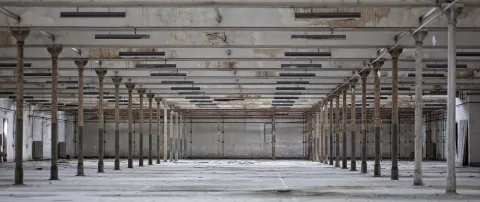Abilities
Multidisciplinary team in the humanities and social sciences, Stories is strong skills in:
History, Philosophy, Economics, Sociology, Digital Humanities
History

The activities of the Récits team in history can be broken down along the following lines:
"Heritage" axis
As an extension of the context of the patrimonial democratization begun in the 1980s, the work carried out here focuses on our relationship to memory and landscape through the traces, material and intangible, inherited from the world of industry. Economic, societal and technical developments have a direct impact on the concept of wealth, whose spectrum has greatly expanded since then. How to give the industrial and technical heritage all its legitimacy in response to contemporary concerns? The expertise developed within the Récits team on this axis commits us for tomorrow. The purpose of the reflection encourages us to mobilize for intelligible, efficient and historically aware heritage forms without ignoring current challenges.
Projects:
• Industrial heritage and environmental issues: the changing landscape.
• A technical history of industrial architecture
Keywords :
Industrial archeology
Cultural history
Industrial and technical heritage
Heritage reconversion
Old materials
Contact : Marina Gasnier
Humanités numériques
Multidisciplinary, the Récits team has a diversified approach to digital humanities:
Axis "heritage and digital humanities"
Renewing practices by mobilizing digital technologies for valorization, museography and cultural mediation of technical objects is one of the skills of the Récits team. Interdisciplinary, this global methodology also called "advanced industrial archeology" is still very little widespread in France despite the added value it represents in the study and the valuation of these heritage objects, as well as in the field of the mediation of the scientific, technical and industrial culture (CSTI). Like the methodology specific to industrial archeology, it is a question of starting from the present to go back to the past by crossing documentary sources and observations made in the field. This information is based on written documents (handwritten and printed texts), iconography (plans, statements, photos, old postcards ..), even oral testimonies of former employees of companies, as well as material traces - more or less well preserved - buildings, machinery or infrastructure still present on the site studied (turntable, overhead crane, railway, etc.). If the crossing of these data allows an understanding and a historical reconstitution of the objects, the complementary use of the digital technologies (CAD and imagery, 3D digitization, augmented reality ...) ensures a dynamic virtual situation. In terms of knowledge, the fact of resorting to the digital reconstitution makes it possible to increase the understanding of the functioning of the old technical objects at the scale of the site, the workshop, the machine (process, flow of the men, etc.). Resituating the site in time and space at different chronological periods is a way to make it readable and understand its adaptation according to its industrialization, its changes of activity, its changes.
Projects:
• Reconstitute the kinematics of technical objects and / or scientific instruments out of order
• Reconstitution of old manufacturing workshops
Keywords :
Reverse Engineering
Advanced Industrial Archeology
General history of techniques
Cultural history
Industrial and technical heritage
Contact : Marina Gasnier
Economic Science
A reflection on the changing modes of social organization of production
In addition to their own research work, the economists of the RECITS team work together to analyze the changing modes of social organization of production, which seeks to highlight the complexity of the processes of change at work. at the level of the systems aiming to create economic, social and environmental value by the valorization of technologies, that at the level of the productive organizations, the institutions and the territories which shelter the actors who take part in these changes.
This process is the result (conscious or not) of past choices that inscribe evolutions in trajectories, but also of social interactions in the pursuit of societal objectives, redefined from period to period. The research work developed in this context thus contributes to fueling the reflection on the societal challenges, prior to the contemporary or current times (H2020) around including the sustainable transition both in terms of energy and "mobility", of the digital transition, demographic transition and the development of an inclusive and reflective society.
This work assumes the coevolution and co-construction of the technical systems and society (including markets and more generally institutions) that host them.
Reflection on the processes of change constitutes the theoretical underpinning of the analysis, which also takes into account the specificities of time and place.
Projects:
Sustainable business model, building sustainable technological ecosystems and human management
Territorial dynamics of productive activities and the employment relationship and smart specialization
Keywords :
Innovation
Technical systems / productive activities
Employment Relationship / Human Management
Business models and sustainable technological ecosystems
Territorial dynamics
Contacts :









